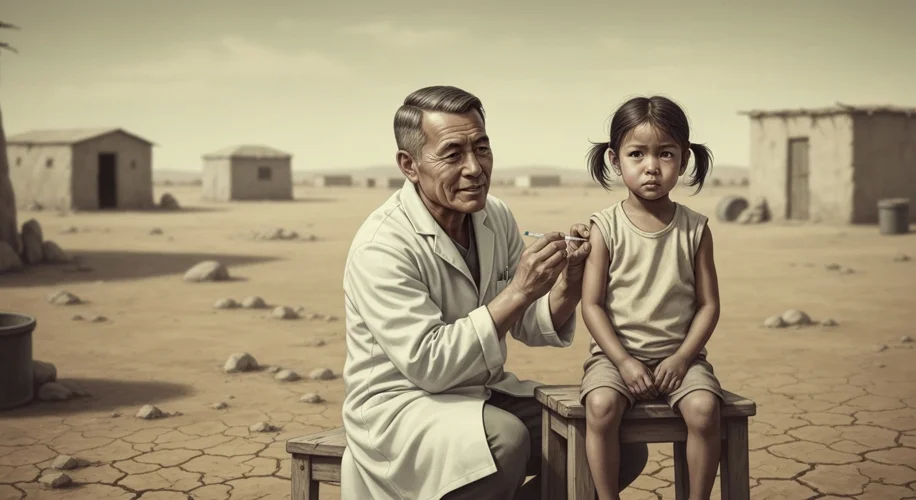Did you know that diphtheria, a serious bacterial infection, is making a dangerous comeback in Somalia? Health officials are sounding the alarm as cases are on the rise. This isn’t just a local problem; it’s a stark reminder of how fragile our global health security can be.
Diphtheria is a pretty nasty disease. It’s caused by bacteria that produce a toxin, and it primarily affects the throat and nose. In severe cases, the toxin can damage the heart, kidneys, and nerves. Historically, it was a major killer, especially of children, before the development of effective vaccines.
The current situation in Somalia is particularly concerning because it’s linked to a perfect storm of challenges: vaccine shortages and cuts to essential aid. When vaccination rates drop, herd immunity weakens, leaving communities vulnerable to outbreaks. This is especially true in areas already facing instability and limited access to healthcare.
As someone who studies environmental science and the impacts of global events, I see a clear connection here. Issues like climate change, economic instability, and conflict can all disrupt health systems and exacerbate existing inequalities. In places like Somalia, where resources are already stretched thin, these disruptions can have devastating consequences. Vulnerable populations, often those who have contributed the least to global environmental problems, bear the brunt of these crises.
The science behind vaccines is incredible. They work by introducing a harmless version of a pathogen to your body, teaching your immune system how to fight it off. Diphtheria vaccines have been a triumph of public health, drastically reducing the incidence of the disease worldwide. But vaccines only work if they can reach the people who need them. When supply chains break down, funding is cut, or access is limited by conflict or disaster, even the best medical science can falter.
This situation in Somalia highlights a critical point: global health is interconnected. The spread of infectious diseases doesn’t respect borders. What happens in one part of the world can, and often does, affect others. It underscores the need for sustained investment in public health infrastructure, equitable access to vaccines, and robust international cooperation, especially in the face of growing global challenges.
So, what can we learn from this? Firstly, it’s a call to action for continued support for vaccination programs and humanitarian aid in regions facing crises. Secondly, it reminds us that addressing the root causes of instability—whether economic, social, or environmental—is also a crucial part of preventing health disasters. We need to ensure that our most vulnerable communities are not left behind when it comes to basic healthcare and protection. It’s about building a more resilient and equitable world for everyone.

